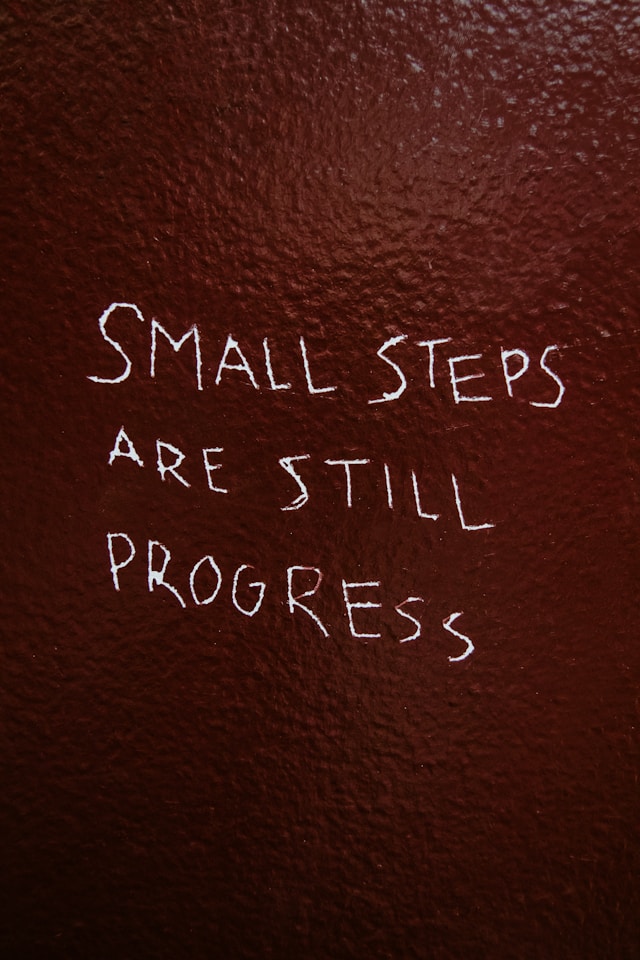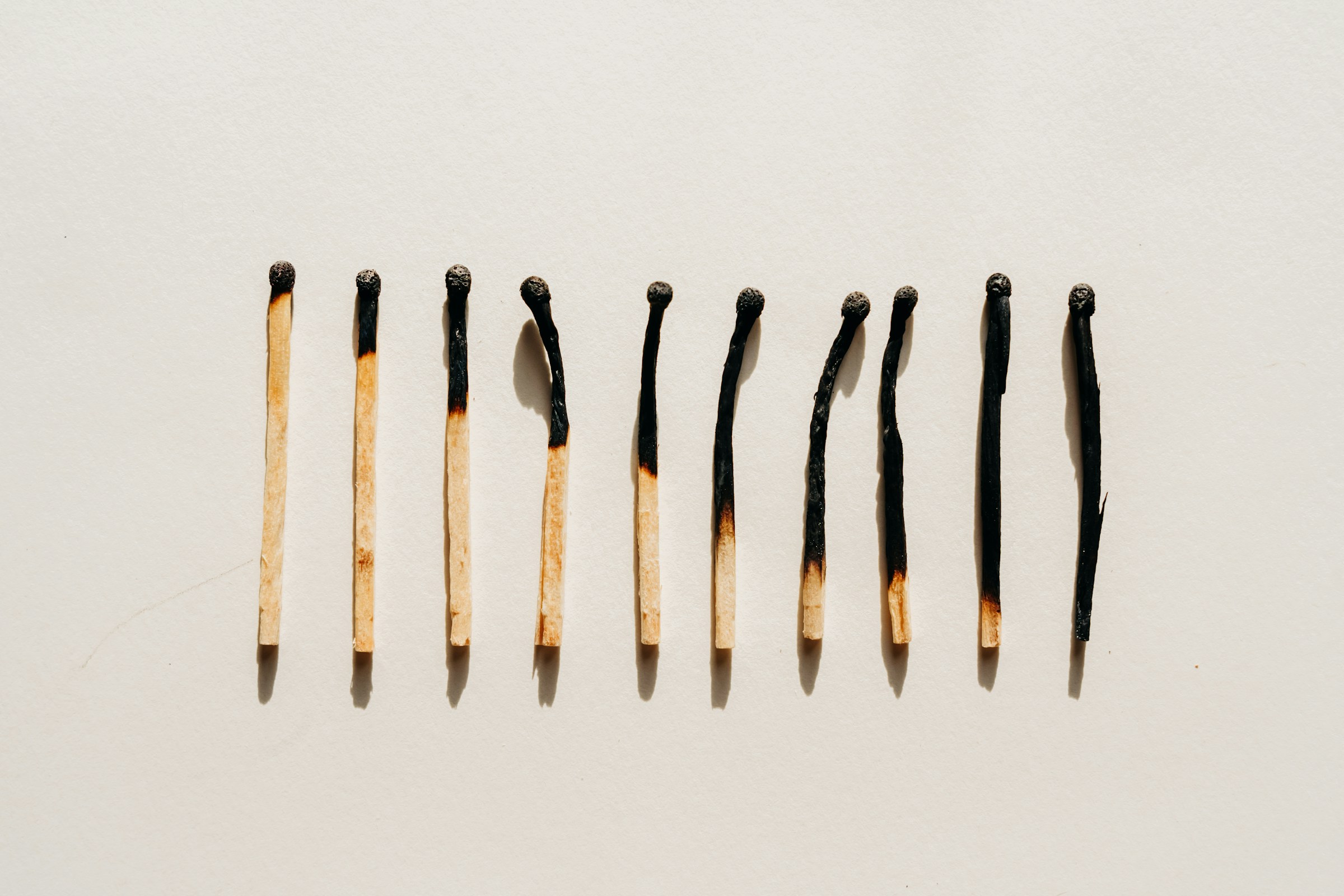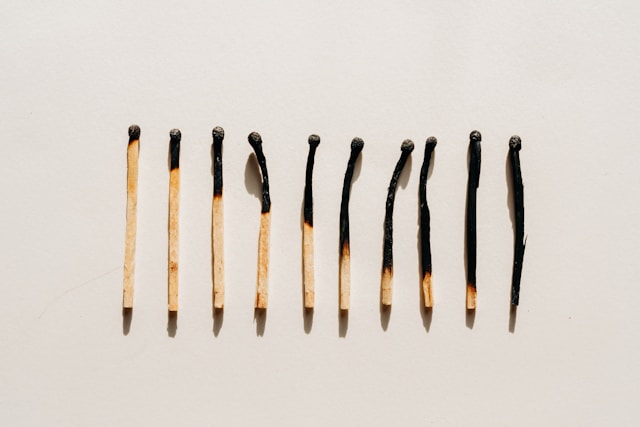Ever feel like you’re literally going to explode because someone forgot to change the toilet paper roll?
Picture this: It’s a regular Tuesday morning. You hit the snooze button a few times before waking up, but now you’re late. You hurry through showering and getting dressed, and then run to the kitchen to grab your coffee, but instead of a steaming hot carafe, there’s an empty pot and a note: “Sorry, we ran out!” And suddenly, you’re seeing red.
You’re not usually an angry person, but lately, you’ve been snapping at your partner over the dishes, seething in traffic, and are one passive-aggressive email away from losing it at work. You know these things shouldn’t be a big deal, but your body and mind are taking them all very personally.
You are so not alone.
It happens to the best of us. But that doesn’t mean it feels good, or that we want to spend our lives stomping around like angry trolls all the time. So why do we get so furious about the little things?

Why do you get so angry over little things? You’re burned out
Common Triggers for Sudden Anger Over Small Things:
- Unresolved stress or trauma
- Sleep deprivation
- ADHD or sensory overload
- Poor emotional regulation habits
- Feeling misunderstood or dismissed
Unlike a lot of other emotions—grief, sadness, jealousy, stress—anger is kind of easy. After all, it often comes on quickly (just picture seeing those dishes in the sink), escalates, and then…pft! It can reside just as fast.
That’s why anger has its own special little spot at the tip of the iceberg, where it’s easy to see, slowing down ships and getting all the attention.
What’s really going on beneath anger outbursts? Emotional Dysregulation
In reality, though, there’s a whole bunch of things happening below, whether it’s exhaustion, insecurity, shame, frustration, hunger, embarrassment or a host of other, more ‘slow-build’ feelings. That anger at the top sometimes is true anger, but a lot of the time it’s just masking all of those other, more complicated, emotions. And that leads to emotional dysregulation, where these emotions tend to just dogpile on top of us and shut us down.
You’re asking yourself why that little tip of the iceberg gets to run the show, aren’t you?
We get it, because pretty much everyone’s been there. Anger gets to steal the show when we’re not able to process our other emotions, often because we are burnt out. When you’ve got no buffer left, (not emotionally, physically, or mentally) everything feels a million times worse. It’s just like when a toddler cries because she’s dropped a Cheerio—she’s tired, and so are we.
When you’ve got no buffer left, no matter how old you are, you’re most likely going to react, not respond.

What Getting Angry About The Little Things Is Actually Trying to Tell You | Anger and Trauma
It might not feel like it in the heat of the moment, but when you’re angry about the dishes, most times you aren’t so much angry about the dishes, but what the dishes being left in the sink represent. That could be feelings like disrespect, imbalance, or invisibility, or just having one more thing to do when you’re already maxed out. Sometimes it’s:
- Feeling unappreciated at home. You’re doing everything for everyone else, and there’s no space for you.
- Being overlooked or unheard at work, in school, or in your relationships.
- Carrying the weight of everything and never feeling like it’s enough
- Or simply pushing through for so long that your body thinks everything’s an emergency
These things are all hanging out under the surface, slowly building, until a little thing happens (like the dishes) to set it all off.
It’s like Jack Sparrow says in Pirates of the Caribbean: “The problem is not the problem. The problem is your attitude about the problem.”
In other words, our anger isn’t just anger for anger’s sake. It’s a signal that we’re struggling in some way. And if we can get to the root of it and find out what’s going on underneath, the more we’re in control of our anger versus the other way around.
P.S. Need help figuring out what’s going on below the surface? That’s exactly what you’ll get when you work with us. Check out our programs here.

What to Do When You Feel Angry For No Reason or Overreact to Small Things
It’s all well and good to know your anger probably stems from somewhere deep within, and it isn’t your kid’s eye rolls or partners socks on the floor that are solely making your temperature rise, but what do you actually do when you’re in the middle of it?
Try one or all of these tricks, each of which is meant to help you hit the brakes before you blow up by breaking the pattern in the moment.
They’re not magic, and they won’t stop every angry outburst. But, practiced over time, they’ll help your nervous system learn a new rhythm, one that doesn’t default to rage every time the world pushes your buttons.
- The Name Game
As soon as you feel your emotional temperature start to rise, acknowledge it, and try to name what’s really going on. Don’t gaslight or shame yourself by saying things like “I’m being crazy.” Rather, give yourself some grace and call it what it is without judgment: “I notice I’m feeling heat.”
- Take a Micro Break
Sometimes the best move is to step away, literally. Walk into another room, put your phone down (if you’re on it), and try splashing a little cold water on your hands and face. The physical break from the source of your tension can help you reset.
- Breathe
We all think we’re breathing all the time, but the truth is that our breathing gets shallower when we’re excited (and anger is just one type of excitement). Try box breathing, where you slowly breathe in to the count of four, hold for four seconds, exhale for four, and wait another four seconds before starting again. You’ll be surprised how fast you can reset your system.
These aren’t fixes, they’re pauses. But sometimes, that’s what you need most.

How You Can Break The Cycle of Getting Angry Over Little Things
In-the-moment tools are great, but if you keep finding yourself in the same anger cycle, it might be time to dig a little deeper.
One way to start is to ask yourself, “Is this worth my energy?”
You might be surprised by how often you answer that with a big, fat “NO”. And when that’s the case, that’s your cue to back away.
This is more than taking a quick five minutes because you’re protecting your peace like it’s your job. Whether it means less doomscrolling, leaving the group chat or the IRL book club, or excusing yourself from a debate that’s never-ending, you’re allowed to protect your energy, even when other people don’t like it.
Because when you’re angry, you might think it’s all about the other person. But the fact is that anger is just the quickest response for bigger feelings.
And when you recognize that, you can choose differently. This doesn’t mean you’ll float through life on Zen energy, but you will know how to pause. And how to stay grounded instead of getting sucked into an under tow of emotions that rob you from any time you’d have actually enjoying yourself.
At Sanare, we work with a lot of people who feel stuck in this same loop. We’re not here to ‘fix you’ or eliminate your anger (because, again, it’s there for a reason). We want to give you the space and tools to understand your patterns, build new ones, and become more you.
If you’re ready to feel more like yourself again (not the snappy, stressed-out version you don’t recognize), you’ll get everything you need from our programs. Check them out or sign up here.
Questions Answered in This Article
- Why do I get so angry over little things?
It's often a sign of unprocessed stress, trauma, or emotional overload. Your nervous system may be reacting before your mind catches up.
- What’s really going on beneath anger outbursts?
For most people, sudden anger outbursts or heightened irritability can be rooted in past experiences where emotions weren’t safe or validated. It's often a trauma response.
- What can I actually do when I’m angry for no reason or feel like I’m about to snap?
Take note in your mind that you're feeling angry, physically walk away from whatever's causing the anger, and try breathing techniques like Box Breathing.
- How do I start breaking the cycle of getting angry over little things?
Try identifying your patterns, pausing before responding, and exploring therapy or emotional regulation tools.
And hey—if you ever feel like you need more support with this?
That’s what we’re here for.
If that hit close to home, here’s more.
Join Us
Tired of the same old mental health advice?
Sometimes funny. Always human. For the days you’re not ready to talk but still want to feel understood.




.jpg)
















